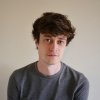Daniel Juckes

Daniel Juckes is a writer from Perth, Western Australia. He is a lecturer in Creative Writing at UWA, Associate Editor at Westerly magazine, and holds a PhD in Creative Writing from Curtin University. His creative and critical work has been published in journals such as Axon, Kalliope X, Life Writing, M/C Journal, Meanjin, TEXT, and Westerly. He was highly commended in the 2021 Fogarty Literary Award, and recently recorded a talk at TEDxYouth@KingsPark.
Sometimes Western Australia feels a long way from anywhere. Of course, that can be an attraction. It makes for something distinct and telling: everyone either revels in it or rebels against it, and both are productive in their own way. But now we must resist. The University of Western Australia’s recent decision to close UWA Publishing (at least in its present form) has made the gap between here ... (read more)
On the first page of her book Hope in the Dark (2004), Rebecca Solnit quotes from Virginia Woolf’s diary: ‘The future is dark, which is on the whole, the best thing the future can be, I think.’ Such optimism is, Solnit acknowledges, surprising. But it’s a persistent theme in her work and it finds clear articulation in her most recent essay collection, Call Them by Their True Names.
Solnit ... (read more)
Claire Halliday's Things My Mother Taught Me opens thus: 'History is a personal thing.' But in this book – a collection of interviews with famous Australians about their mothers – each personal story feels too similar, shorn of the thing which makes memoir so particular and powerful: the voice of the individual. The result is lacklustre; trapped somewhere between essay and interview. The effec ... (read more)
Crow is wild. His black eyes glint and his beak seems to smile. Malicious and mischievous, he sits in a living room with two boys and their father wrapped in his wings. The woman who was their mother and wife has died, leaving the family 'like Earth in that extraordinary picture of the planet surrounded by a thick belt of space junk'.
Crow is the titular bird of Ted Hughes's 1970 poetry collectio ... (read more)
After fiddling with the bits of leather designed to curtail a newly bought goshawk, T.H. White grumbled that 'It has never been easy to learn life from books' (The Goshawk, 1963). Helen Macdonald says the same thing, twice: all the books in piles on her desk, designed to help her deal with grief, cannot 'taxonomise the process, order it, make it sensible'. 'The books don't work,' she says. But it ... (read more)
Writing about masculinity is difficult. But Paul Dalgarno, a founding editor at The Conversation, accepted the challenge. In And You May Find Yourself, he expresses truths which never seem trite or indulged.
The book describes the author's relationship with his father, as well as the flaky bond he shares with his wife and sons. These anxieties are set against Dalgarno's relocation from Scotland t ... (read more)
Berlin is built on sand, says Stuart Braun in City of Exiles; it is 'never far away from darkness'. It is a city of tolerance, which exerts a psychic pull for anarchists, artists, and those who become Wahlberliners: 'the people who choose to live in Berlin.'
City of Exiles' own sandy foundations make it difficult to find anything solid to hold onto in the early chapters, where Braun is more histo ... (read more)
